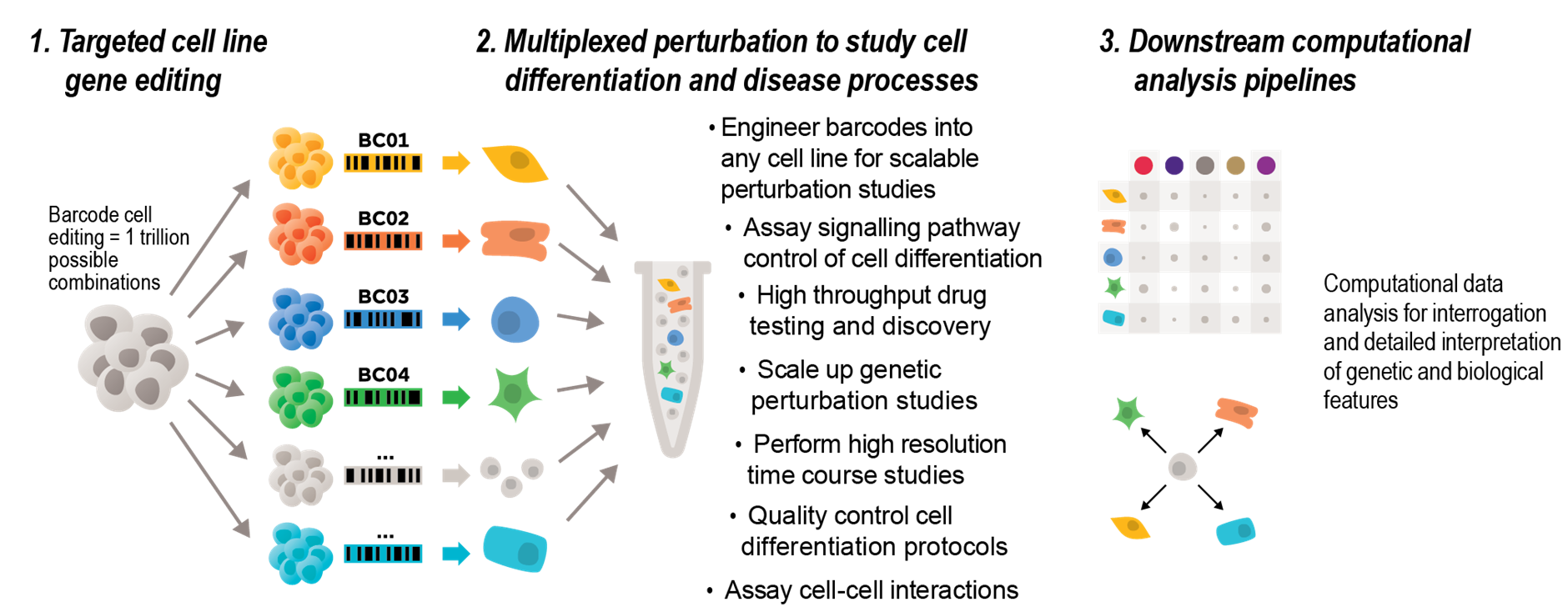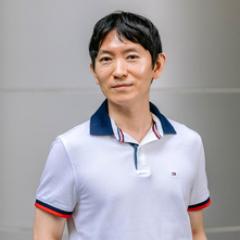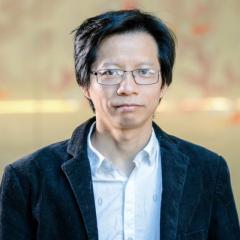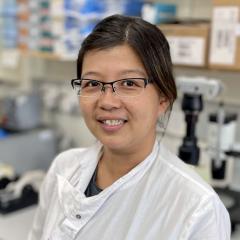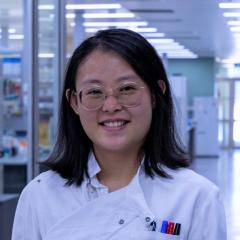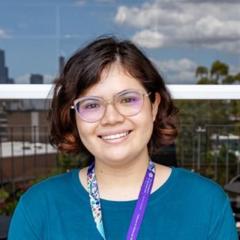Discovering the genetic basis of cardiovascular development and disease
The Palpant laboratory focuses on mechanisms controlling cardiovascular development and disease, drawing on three core themes spanning genomics, cell biology, and cardiac physiology. We are studying mechanisms controlling human pluripotent stem cell differentiation to derive functional human cell types for disease modelling and cell therapeutics, using consortium-scale data and systems biology methods to identify mechanisms controlling cell identity and function, and studying molecules discovered in Australia’s venomous flora and fauna as new drug therapeutics for cardiovascular disease.
The lab expertise covers multidisciplinary approaches involving stem cell biology, genomics, statistical genetics, bioinformatics, gene editing, drug discovery, and animal physiology. We draw on national and international clinical and industry partnerships to orient our priorities toward translational opportunities that address key areas of unmet need in clinical care and industry discovery pipelines.
Group leader

Professor Nathan Palpant
Group Leader, Stem cells and cardiovascular development
+61 7 334 62054
n.palpant@imb.uq.edu.au
UQ Experts Profile
Characterization of Tnnc1 variant in cardiac and skeletal muscle function
(2024–2025) Australian Functional Genomics Network
Molecular definition of cellular states in the vascular endothelium
(2023–2026) ARC Discovery Projects
TRIAGE: A disease agnostic computational and modelling platform to accelerate variant classification
(2022–2026) NHMRC MRFF Genomics Health Futures Mission
(2021–2026) University of Sydney
The Australian Functional Genomics Network (Administered by Murdoch Children's Research Institute)
(2021–2026) Murdoch Childrens Research Institute
Development of drugs to prevent ischemic injuries of the heart and brain
(2021–2025) NHMRC MRFF - Cardiovascular Health Mission
Acid sensing ion channels regulate organ stress responses to ischemia
(2025 - 2027) NHMRC IdeasGlycaemic variability: A culprit cause of heart disease in diabetes
(2024 - 2026) MRFF Targeted Translation Research AcceleratorSpider venom peptides: precision therapy for genetic epilepsies
(2024 - 2028) NHMRC MRFF Stem Cells Therapies MissionThe HEART REHAB Clinical Trials: Therapeutics to Protect the Human Heart
(2024 - 2028) MRFF Frontier Health and Medical Research Program administered by AusIndustry- (2024-2026) NHMRC MRFF Post-Acute Sequelae of COVID-19
| Dr Nathan Palpant | Shaping Australia Award Finalist, Universities Australia (2025) |
| Dr Nathan Palpant | Excellence in Cardiovascular Research Translation Award, Australian Cardiovascular Alliance (2025) |
| Dr Nathan Palpant | Public Service Award, International Society for Stem Cell Research (2025) |
| Dr Nathan Palpant | Emerging Leader Award, Australia New Zealand Society for Cell and Developmental Biology (2024) |
| Dr Nathan Palpant | Emerging Innovator Award, Life Sciences Queensland (2024) |
| Dr Yuanzhao Cao | Phenomics Australia Pipeline Accelerator Award (2024) |
Dr Yuanzhao Cao and Dr Meredith Redd | Heart Lung and Circulation BEST REVIEW PRIZE HIGHLY COMMENDED (2024) |
Dr Amy Hanna | IMB Women in Science and Technology (WIST) Fund recipient (2023) |
| Dr Enakshi Sinniah | Emerging Achiever Science Award Finalist, Women in Technology Awards (2022) |
| Dr Enakshi Sinniah | Ignite Innovation Award, Institute for Molecular Bioscience (2022) |
| Dr Enakshi Sinniah | Lindau Nobel Laureate meeting nomination by the Australian Academy of Sciences (2022) |
| Dr Nathan Palpant | Heart Foundation Future Leader Fellowship Award (2022) |
| Dr Woo Jun Shim | Emma Whitelaw ECR Publication Award – Australian Epigenetics Alliance (2022) |
| Dr Woo Jun Shim | UQ Industry Engagement Award (2022) |
| Dalia Mizikovsky | Queensland Cardiovascular Research Network PhD top up scholarship (2022) |
| Dr Meredith Redd | Institute for Molecular Bioscience Impact Award for Paper of the Year (2021) |
| Dalia Mizikovsky | Best First Year PhD Student Short Oral Presentation Award Australian Society for Stem Cell Research (ASSCR) ECR Symposium (2021) |
| Dr Meredith Redd | Ralph Reader Basic Science Prize of Cardiac Society of Australia and New Zealand (CSANZ) (2021) |
| Dalia Mizikovsky | Michael F. Hickey Memorial Honours Prize, The University of Queensland (2020) |
| Dr Enakshi Sinniah | ISSCR Zhong Mei Chen Yong Award for Scientific Excellence International Society for Stem Cell Research (ISSCR) |
| Dr Nathan Palpant | Lorne Genome Millennium Science Mid-Career Award (2019) |
| Dr Nathan Palpant | Global Strategy and Partnerships Award, The University of Queensland (2019) |
| Dr Nathan Palpant | Wellcome Trust Award, The International Congress of the Society for Developmental Biology, held in Singapore (2019) |
| Dr Meredith Redd | Outstanding Poster Presentation Award at ISSCR/KSSCR Annual Meeting, held in Seoul, South Korea (2019) |
| Dr Meredith Redd | Travel Award for Best ECR/MCR Presentation at NIH Cardiovascular Bioengineering Symposium, held in Sydney, Australia (2019) |
| Dr Enakshi Sinniah | Best Oral Presentation Award Australian Society for Stem Cell Research (ASSCR) Annual Meeting held in Brisbane, Australia (2019) |
| Dr Enakshi Sinniah | ISSCR/KSSCR Travel Grant for Outstanding Oral Presentation Award ISSCR/KSSCR Annual Meeting held in Seoul, South Korea (2019) |
| Dr Enakshi Sinniah | Best PhD Talk Award Oz Single Cell Conference Annual Meeting held in Melbourne, Australia – Enakshi Sinniah (2019) |
| Dr Nathan Palpant | Research Excellence Award, The University of Queensland Foundation (2019) |
The Palpant lab is comprised of members with a range of career development from honours and PhD students to research assistants and postdocs that enable training at all levels. The lab has diverse areas of expertise including wet lab work on stem cell biology and animal models to dry lab work with expertise analysing large scale genomic data. This diversity provides an ideal environment for interdisciplinary collaborations across the lab that result in high impact papers delivered by members at all levels of training. I am engaged with project design and analysis across the lab and aim to mentor groups to work together on projects to facilitate team involvement while ensuring each member has a clear and distinct project to work on.
Our Strategy
The Palpant laboratory aims to identify the decision-making DNA elements of cells, design approaches to control cell differentiation decisions during development, and discover new approaches to control heart cell functions including development of new therapeutics for heart disease.
We implement diverse wet and dry lab approaches linking genome regulation with cell function using computational bioinformatics, cell biology, gene editing, animal physiology, and drug discovery.
Outcomes from the group have led to translational impact including formation of a new UQ spinout company, Infensa Bioscience, as well as partnerships with companies in Europe, Canada, and the US. The team has expertise in pluripotent stem cell biology, cardiac muscle cells, and genomics with our publications cited 7-fold higher than the field average (Topic E 4031 FWCI of 7.37, SciVal). Our research has been featured on the ABC (including a Catalyst documentary), Newsweek, The Guardian, and The Washington Post.
Key areas of interest
- Genome sequencing is a powerful tool for studying the biological basis of disease, yet out of millions of data points, finding the underlying cause of development and disease can be difficult. We are using methods in systems biology and genomics to develop innovative computational approaches that reveal how the genome controls cell decisions. These tools not only reveal novel processes controlling development but can also identify regions of the genome underpinning mechanisms of disease.
- Our inability to accurately guide cell differentiation pathways currently limits the utility of iPSC-derived cell products in research, tissue engineering, and drug discovery. We are delivering benchmark data and iPSC tools that are accelerating discovery into mechanisms of cell differentiation. We use iPSCs with cell barcoding technology and new sequencing approaches to evaluate mechanisms of cell differentiation decisions at single cell resolution and develop models of cardiovascular disease for drug discovery.
- Conditions caused by obstruction of blood flow to the heart are the most common emergency manifestation of cardiovascular disease and the leading cause of death in the world. We work closely with chemists and clinicians to discover and test new drugs to address this key area of unmet need. Our recent work has focused on a spider-venom derived inhibitor of ASIC1a, Hi1a, which we are advancing into large animal models and FDA approved safety tests for clinical development to treat ischemic heart disease.
General enquiries
+61 7 3346 2222
imb@imb.uq.edu.au
Media enquiries
IMB fully supports UQ's Reconciliation Action Plan and is implementing actions within our institute.
Support us
Donate to research
100% of donations go to the cause

